ENDING GBV AGAINST WOMEN AND GIRLS: PERILS AND ASPIRATIONS OF WOMEN JOURNALISTS
In line with UN Women’s 16 Days of Activism that runs every year from 25th November to 10th December, Global Neighborhood for Media Innovation engaged in a campaign to create safe spaces for women in journalism. The campaign was centered around 16 women journalists – with 4 additional journalists for extra measure – who were invited to share their thoughts on gender-based violence (GBV), prejudice, discrimination, harassment, and violence in the newsroom and in the media industry.
In collaboration with UN Women Pakistan, GNMI’s social media campaign consisted of women journalists’ experiences, thoughts, and recommendations to counter GBV through social media posts shared every day between the 16-days-of-activism timeline. These posters held quotes by leading women journalists in Pakistan including Asifa Idrees, Asma Shirazi, Bushra Iqbal, Bushra Qamar, Diya Rehman, Kiran Qasim, Rabia Bugti, Sehrish Khokhar, Sidra Dar, Xari Jalil, and Zofeen Ibrahim shared on all GNMI social media platforms.

As part of the collaboration, UN Women Pakistan posted posters with quotes of women journalists including Afia Salam, Amber Raheem Shamsi, Annie Shirazi, Ayesha Khalid, Gharida Farooqi, Lubna Jerar Naqvi, Nadia Naqi, Sheema Siddiqui, and Urwa Ahmed shared on all UN Women Pakistan social media platforms.
The campaign culminated into a program titled Ending GBV Against Women and Girls: Perils & Aspirations of Women Journalists held at the University of Karachi on 7th December wherein a panel of leading journalists in the media industry came together to highlight the issues that female journalists face in their professional circles, the challenges threatening their professional success, how to combat any gender-based issues both in personal and professional setups and how male counterparts can play a role in diminishing GBV.

Led by GNMI’s Founder and President, Najia Ashar, the panel included leading names in the media industry including Afia Salam, Aleena Farooq Shaikh, Nadia Naqi, Nasira Zuberi, Nusrat Haris, and Uzma Al-Karim.

The experts covered women’s role and representation in the traditional and digital news media industry to counter GBV, the underrepresentation of women in media in correlation to GBV, media’s role in making an equal and just society, GBV reporting in current affairs, and its impact on society, how media can change its sensational style coverage of GBV into responsible coverage, and policy and governance reforms in media organizations to end GBV.

Some special guests were also invited to the program including GNMI’s secretary-general, Lubna Jerar Naqvi, and the University of Karachi’s Dean Faculty of Pharmacy, Dr. Fayaz Vid. The event was also joined virtually by UN Women Pakistan’s Deputy Country Representative, Jacqui Ketunuti, and Portfolio Manager EVAW, Governance, and Human Rights, Saman Ahsan.
Through the campaign, GNMI generated discourse among the journalist community and media industry regarding the pressing problem of GBV in media specifically and society in general. Additionally, masses on digital media were engaged through the campaign and educated about the struggles of women in media.
With programs as such, GNMI hopes to give rise to a more inclusive journalistic community that continues to strive to create safe spaces for women in media to address GBV issues.
Break the Silence – 16 Days of Activism Against Violence 2022
The 16 Days of Activism against Gender-Based Violence is an annual international campaign that kicks off on 25 November, the International Day for the Elimination of Violence against Women, and runs until 10 December, Human Rights Day.
Every year, Global Neighbourhood for Media Innovation joins the international community in advocating to create safe spaces for women. Every year, our campaign focuses on a specific theme. This year’s campaign has called attention to women who are being attacked for their gender and murdered by a family member. We have also educated our audience about SOPs and best practices when dealing with a GBV case a lawyer, journalist, and/or interviewer. It has also contained details on the first response as a survivor and support services to contact. The full campaign can be viewed here.
As a culmination of the 16 Days of Activism campaign, GNMI have hosted a roundtable discussion on ending violence against women and girls, especially online, with journalists, social media activists, legal and gender experts. The program aims to navigate the challenges and solutions to protecting the safety of women, both online and offline.
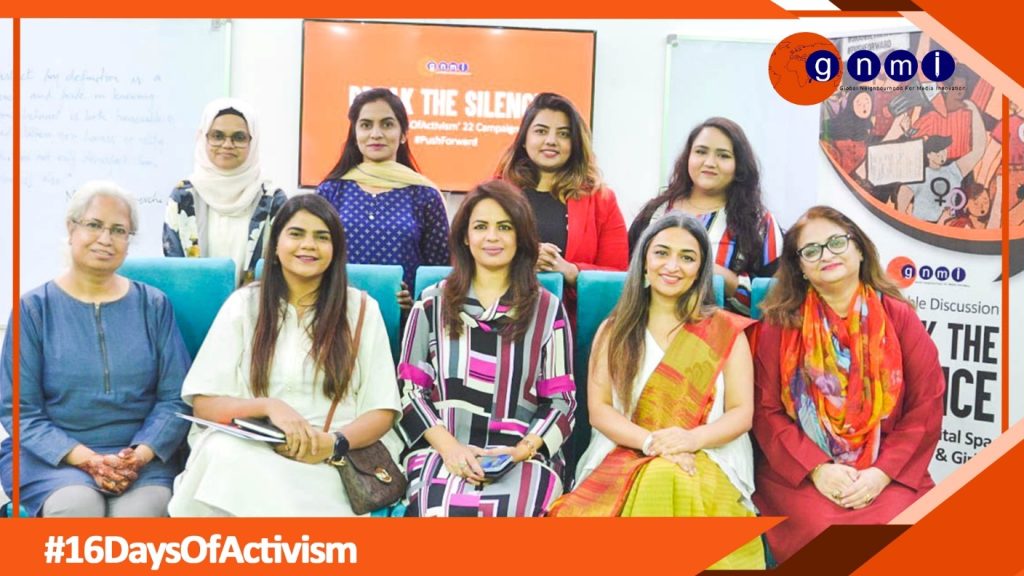
Najia Ashar, GNMI’s founder and media development professional, has highlighted the significance of 16 Days of Activism and her organization’s work toward preventing and eliminating GBV. “Every year GNMI runs extensive campaigns to highlight the issue of gender-based violence, educate our audience, and conclude it with a discussion as such to culminate it and search for solutions to the problems and challenges of gender-based violence,” she said.
The roundtable has also included media educationist Kaif Ghaznavi, legal experts Zarin Khwaja and Farah Khan, gender expert and journalist Lubna Jerar, social media influencer Romana Anjum, and trainer Sonal Dhanani.
The discussion has revealed that patriarchy plays a “huge role” in Pakistani society when it comes to violence against women and girls. “Even women’s empowerment in our society is controlled and considered something that can be given or taken by men,” said social media influencer Romana Anjum.
Elaborating her views, Anjum added that during the Lyari Operation in the early 2010s, she witnessed how women were stationed outside each house to protect their family and deemed it “empowering”. “The catch was that even this was ‘controlled empowerment’, because the men were permitting their women to assume that power position. And this is what we still see in our families. It’s always a man that gives their wife, daughter or sister the ‘permission’ to be empowered,” she said.
Farah Khan, a legal expert, have spoken about the issues with the justice system when concerning a victim or survivor of GBV. “The problem with our society is that we need a victim to look like a victim. This means a victim needs to cry, have visible bruises, etc., in order for them to be believed. And a dead body is the biggest evidence,” she said, adding that a person has to lose their life just to be heard or taken seriously.
Another lawyer, Zarin Khwaja has commented on the lack of a proper legal framework in Pakistan and how most of the country’s law is copied from international law. “There are significant shortcomings in our legal system. One example is that I once spent 25 years lobbying and pushing for a law which got implemented only because it suited a party’s agenda. And yet, this law was copy-pasted from some other country, which does not even acknowledge the cultural aspects,” she said. Zarin added that her effort, however, garnered no response because she had to lobby again to have the said law amended.
Media educationist Kaif Ghaznavi, during the discussion, talked about cyber harassment and mentioned that parents are children’s biggest allies, no matter how difficult of a situation they might find themselves in. “Children need to give their parents more credit and trust them enough to open up to them. In most cases, your parents will likely understand and provide the help you need,” she added.
Lubna Jerar has recapped the discussion and relayed the recommendations gathered.
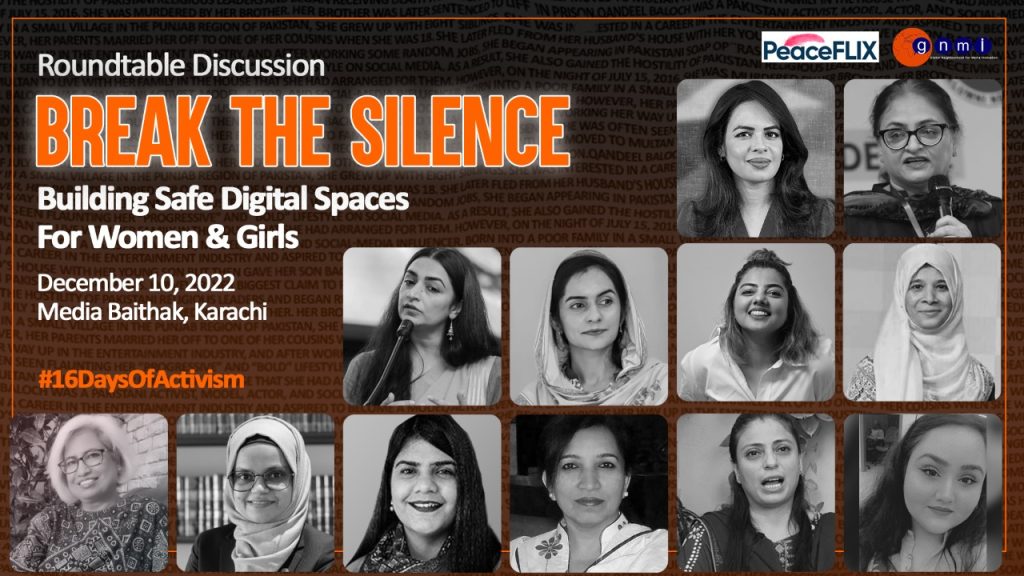
#MurderNotHonour: Digital Campaign Against Gender-Based Violence
As part of the global 16 Days of Activism Against GBV 2022, GNMI launched a powerful digital media campaign. The campaign amplified the stories of seven women in Pakistan—all victims of honor killings—through evocative visual storytelling. This initiative aimed to confront the normalization of gender-based violence, particularly under the guise of “honor,” by using digital media as a tool for awareness, empathy, and action.
Rights-Based Advocacy
The campaign focused on promoting a justice-centered narrative around gender-based violence, with key advocacy goals to:
- Reject the term “honor killing” and acknowledge it for what it truly is — murder.
- Call for stronger legal accountability and enforcement of laws protecting women.
- Empower media-driven advocacy to amplify voices for women’s rights and justice.
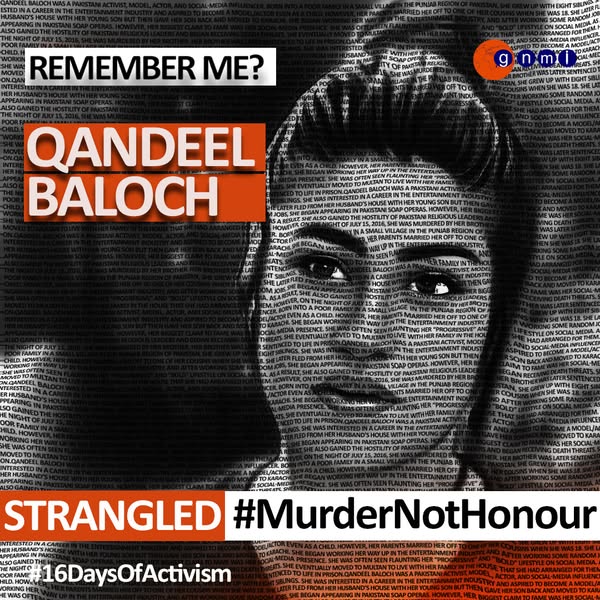
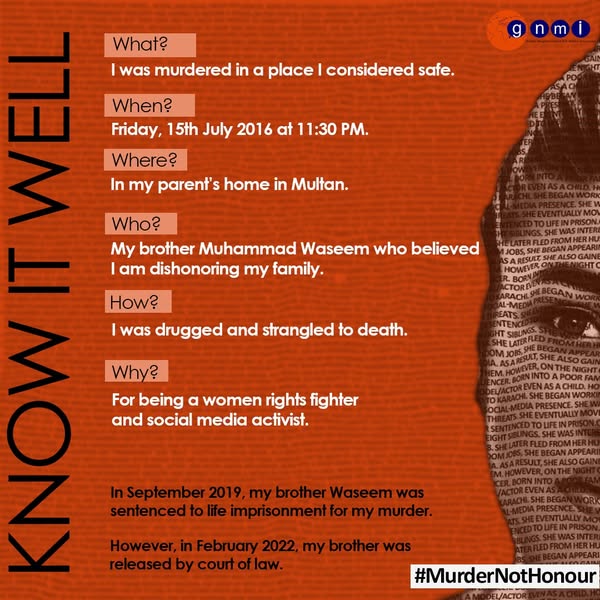
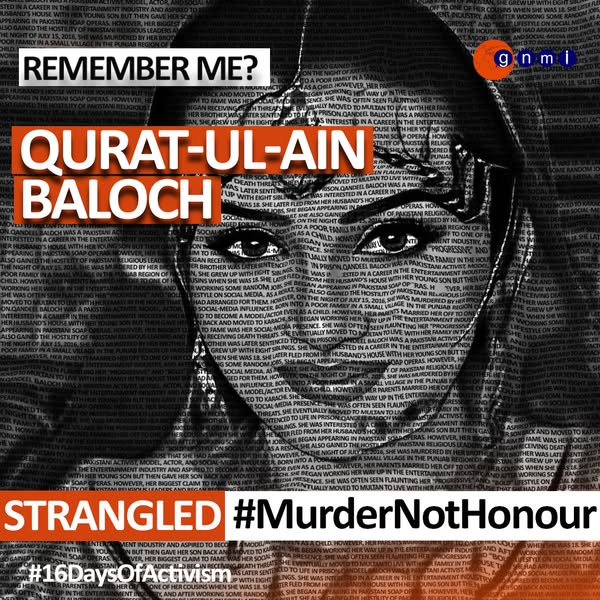
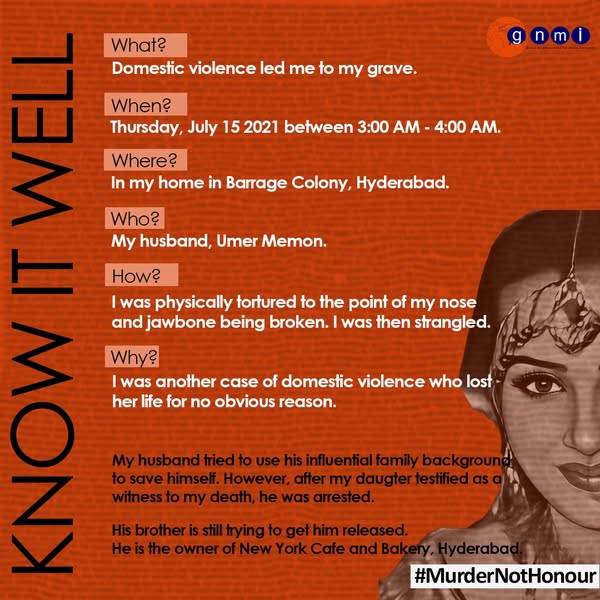
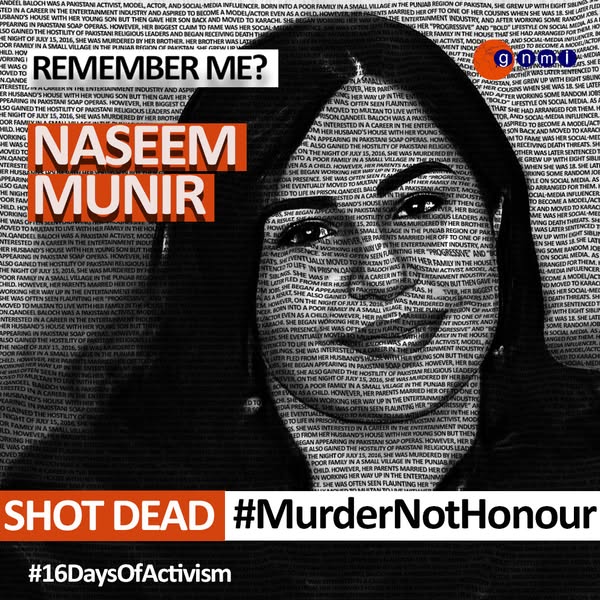
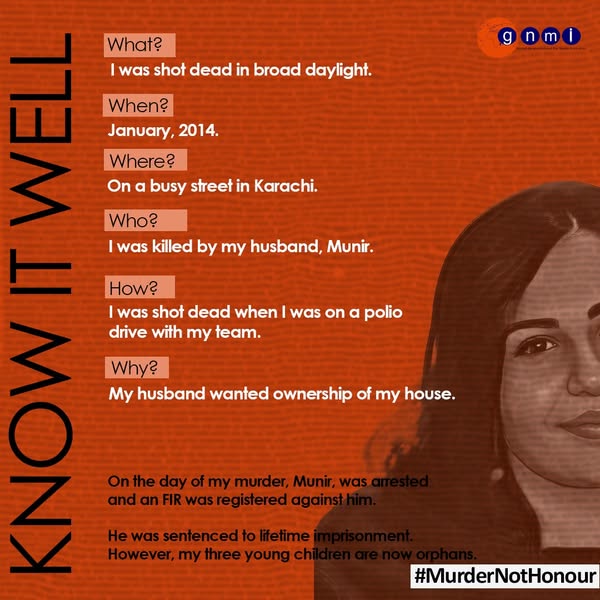
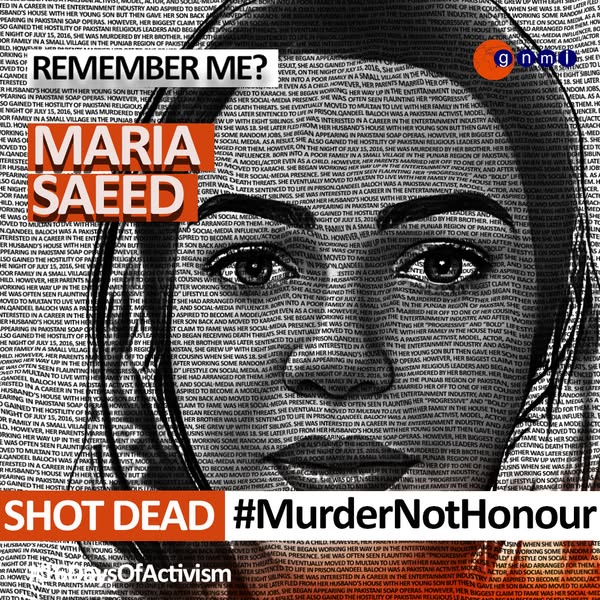
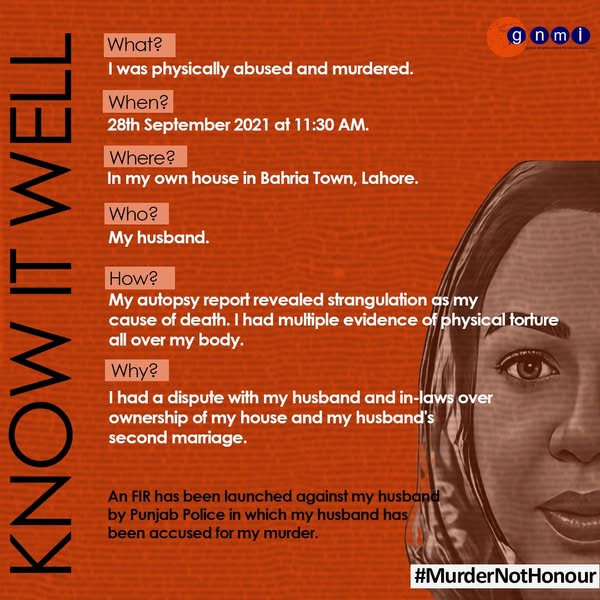
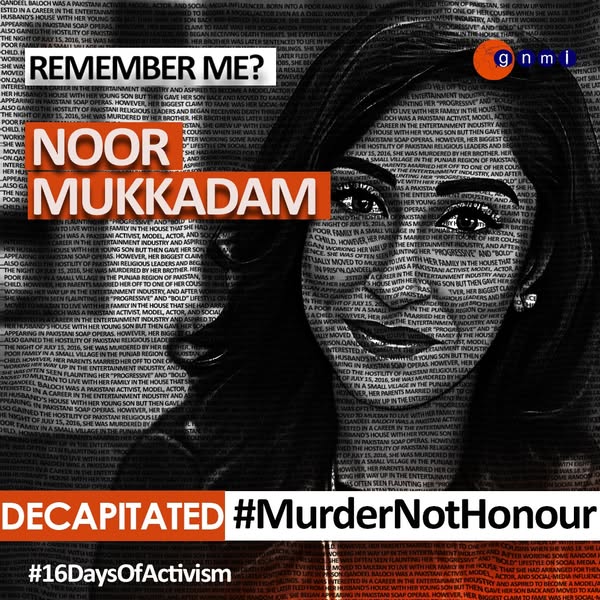
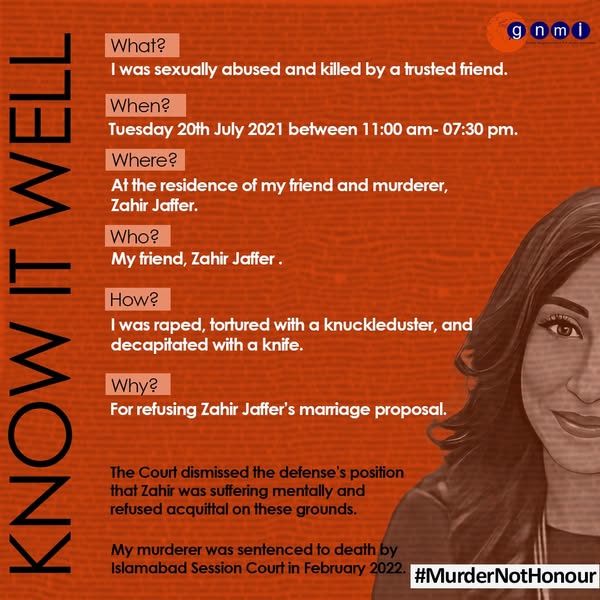
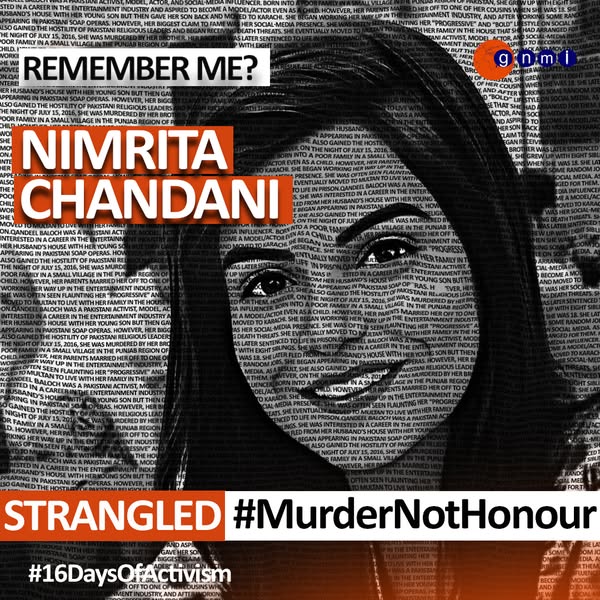
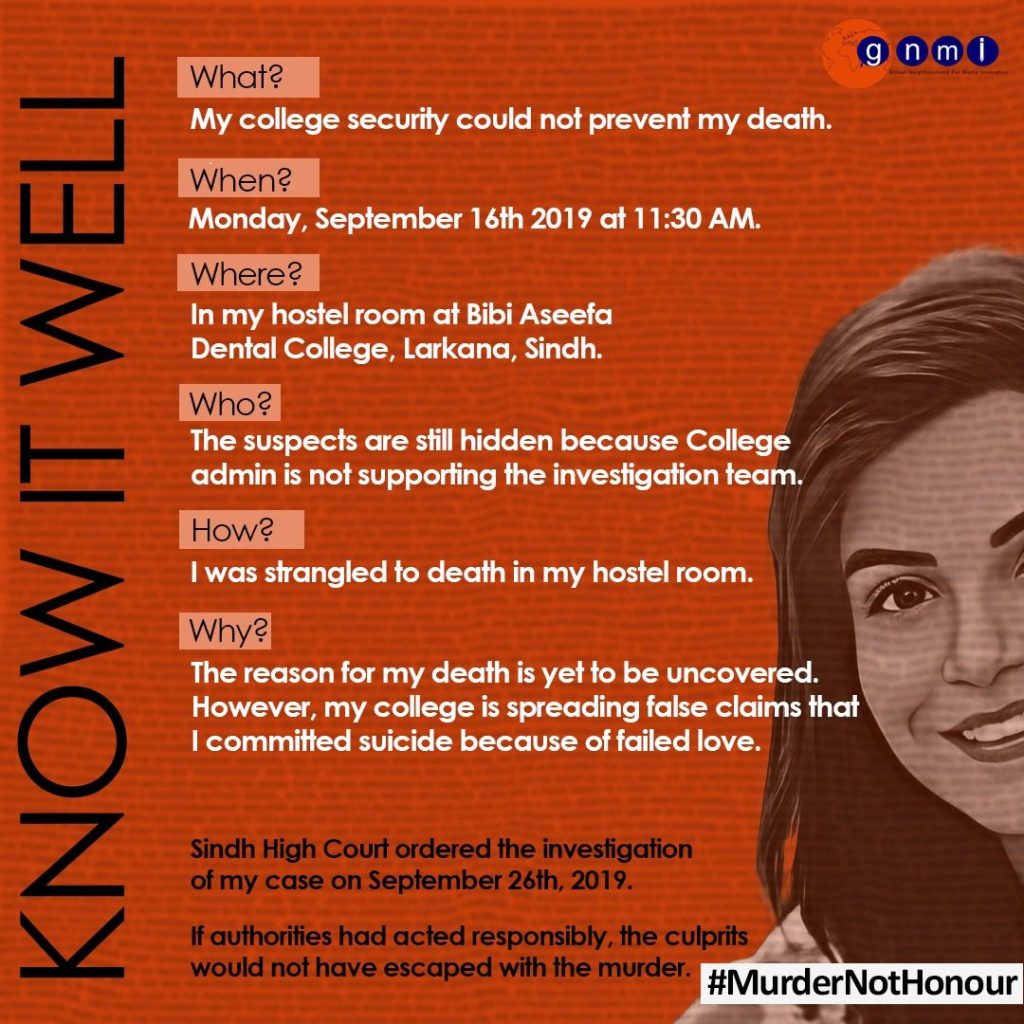
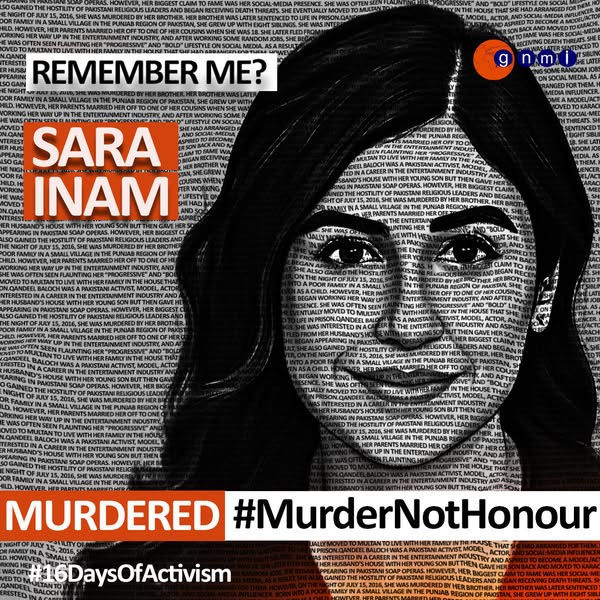
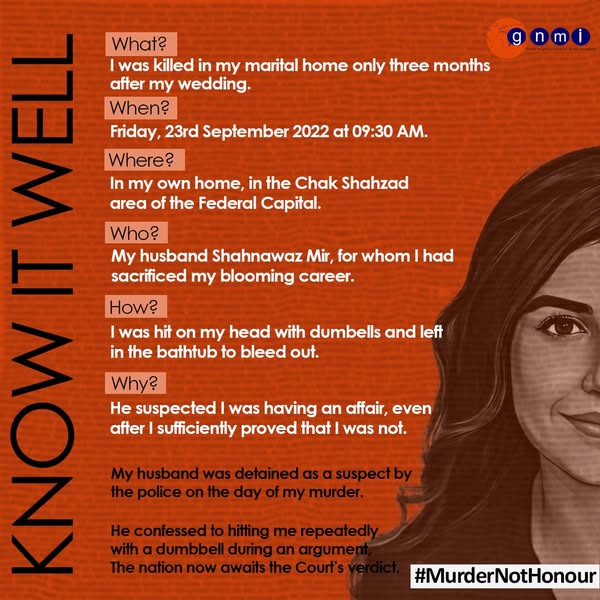
#UNITEforChange – 16 Days of Activism
In line with UN Women’s 16 Days of Activism, which runs every year from November 25th to December 10th, GNMI has launched the #UNITEforChange campaign. In this campaign, two publications were unveiled, two podcasts and Twitter spaces have also been organized with senior journalists and GBV experts, legal expert, educationist, artists and media representatives.
The first publication, “Redefining Narratives – A Comprehensive Guide to Gender Sensitivity, GBV Reporting, and Legal Empowerment for Journalists”, has been developed to inform journalists in understanding GBV prevalence, media reporting in Punjab, criminal justice processes, survivor support services, and best practices in GBV advocacy. The second publication, “Reporting GBV Responsibly: Nurturing Ethical and Comprehensive Journalism”, serves as a pocket guidebook, providing ethical guidelines for journalists and digital content creators to responsibly report on GBV.
GNMI has also hosted two impactful podcasts. The first podcast, moderated by Najia Ashar with senior journalist Tanzeela Mazhar, unfold the portrayal of women in Pakistani media, exploring workplace challenges, societal perceptions, and the disparity between TV narratives and real-life experiences. This podcast emphasizes the need for gender policies in organizations and training on GBV cases. The second podcast, featuring senior broadcast journalist Gharidah Farooqi, has highlighted the alarming increase in GBV cases, the media’s tendency to prioritize political issues over GBV, and the importance of using social media to raise awareness. It stresses the need for media to report GBV without sensationalism and to empower women in decision-making roles.
Two Twitter Spaces were also organized under this campaign.


The first, titled “گھریلو تشدد کے واقعات، سلسلہ آخر کب تھمے گا؟“, has been moderated by Tanzeela Mazhar, initiated discussions with Rooba Arooj, Fizza Ali, Amina Asif, Fakeera, Ezra Ejaz, and Shazia Mehboob. They have discussed the pervasive issue of domestic violence, emphasizing the need to raise awareness about its various forms and educate people that “this is bad, and they should not be sacrificing themselves.” The conversation has also highlighted that “economic factors also act as the catalyst for domestic violence” and that many women are unaware of the legal protections available to them. The speakers have noted that “people have normalized violence or abuse in their lives,” and even close ones often advise victims to tolerate it. They underline the importance of grassroots interventions, societal campaigns, and interdepartmental coordination to support survivors and break the cycle of violence. By tackling the root causes, such as discriminatory mindsets and upbringing, and providing necessary support, we can work towards a future where domestic violence is no longer tolerated.
The second Twitter Space, “#TweetingTruths: Media’s Influence on Countering GBV,” with the same moderator Tanzeela Mazhar, featured guest speakers Fauzia Yazdani, Ezra Ejaz, Fizza Ali, Murtaza Zehri and Zareen Qureshi. This discussion focused on the powerful influence of media, particularly the mainstream and drama industry, on GBV and the need to challenge stereotypes and discriminatory narratives. Fauzia Yazdani highlighted the importance of media in portraying women’s safety, protection, dignity, and equality as outlined in the constitution. Tanzeela has criticized the drama industry’s role in normalizing violence and shaping societal mindsets. The speakers have noted that social media plays a crucial role in shaping perceptions, especially among millennials and Gen Z, and stresses the need for educational programs to raise awareness. Zareen Qureshi have highlighted the insensitivity in media portrayal of cases and called for positive narratives around domestic violence survivors. The conversation has stressed the need for psychological and social support for survivors, and for media campaigns to raise awareness and advocate for women’s rights and protection.
